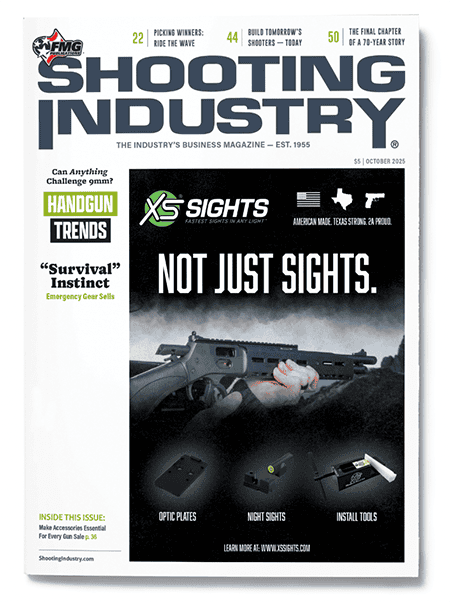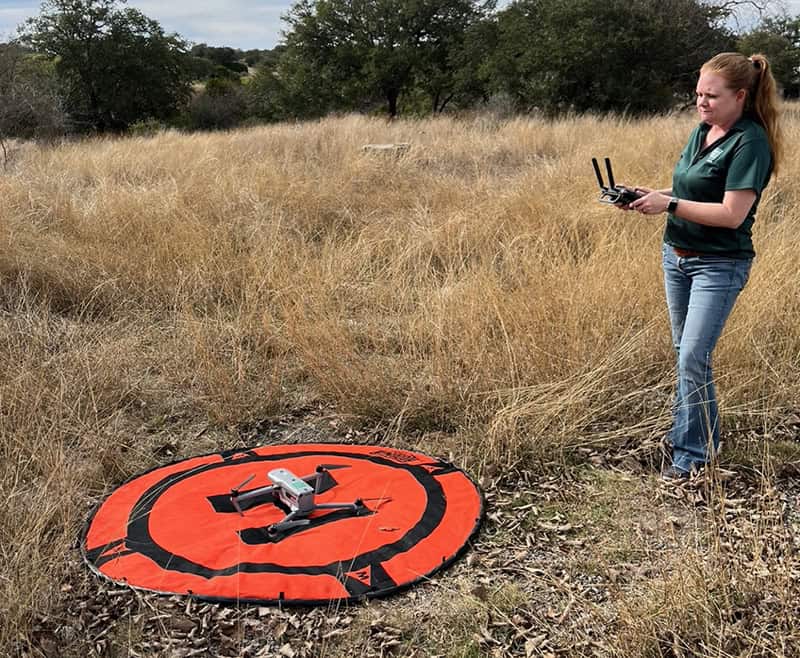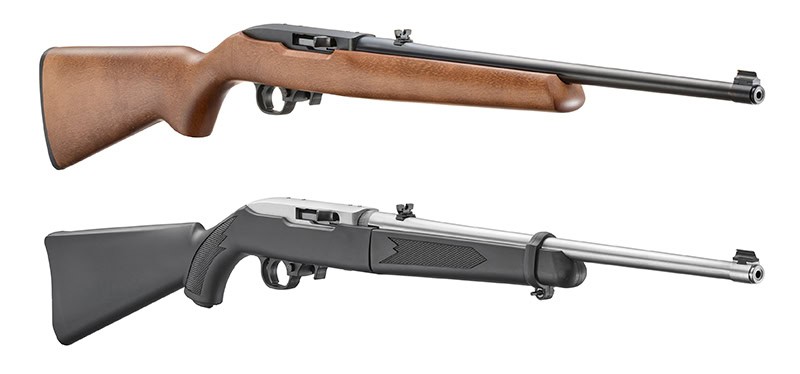Magnetize Your Sales With Gunsmithing
Adding a gunsmithing operation to your store can be a great way to help customers, expand business and stand out from the competition. But it’s not something to jump into without considerable thought.
What services are you going to offer? What will you avoid? How are you going to make sure the segment turns a profit? And who, exactly, are you going to trust with your customers’ treasured firearms?
That last question may be the one you need to answer first, suggests Larry Hyatt, owner of Hyatt Guns in Charlotte, N.C., where they have a team of six gunsmiths on staff. Even when you have highly skilled smiths, there are going to be some mistakes.
“The biggest problem with gunsmithing is the talent,” said Hyatt, who has the luxury of hiring from a local college with a two-year gunsmith degree program. “You’re dealing with other people’s property. And every once in a while, you get to buy somebody a gun because you screwed up.”
Kurt Davis, whose shop has two full-time smiths, is co-owner of Accuracy Firearms in Effingham, Ill. He draws a distinction between “gunsmiths” and “gun mechanics.”
“A mechanic is someone who fixes a broken part. They buy a part, take out the old part and put the new part in,” he explained. “Our gunsmiths can make firing pins. They can make springs. If they can’t get a part for a gun, a lot of the time they can make it right here in the store.”
Both stores offer a wide range of smithing services — with only a few exceptions (more on that in a bit). The key is they have complete faith in their smiths’ ability to do any of the tasks they accept. They can’t afford not to.
“It takes years to build a good reputation in business,” Davis said, “and it takes five minutes to lose it.”
Limits Are Okay
To have that level of confidence, it takes an honest assessment of your gunsmith’s skills and the equipment available for use on various projects. It’s also important to prioritize the services you want these smiths to offer.
Let’s consider the milling of handgun slides for optics and sights. It’s a service both stores have chosen not to offer.
Hyatt Guns has looked at it, but isn’t ready to take the step, in terms of machinery and training.
“It’s an investment of money and skill,” he reasoned. “There’s risk because you’re cutting on other people’s expensive property.”
For Accuracy Firearms, it’s more of an issue of the time it would take to add a new service.
“We have the ability and the tools to do it,” Davis shared. “The problem is our gunsmiths are tasked so heavily right now. I couldn’t count the number of guns sitting in there waiting for work.”
Other limits may vary by customer.
Accuracy Firearms offers full-service restorations. Does it mean every gun is a good candidate for the pricey return to its original form? The store occasionally deals with the unrealistic expectations of customers who come in with a beloved relative’s old rifle or shotgun. Managing customer expectations is important.
“It means the world to them, but it’s going to cost $400 to get it up and running,” Davis stated. “I mean, we’ll do it if they want. But you’re literally looking at a JCPenney special or Sears Roebuck special that isn’t worth $75.”
This brings us to another key consideration. Customers are going to love having access to (and talking to) your gunsmith.
Avoiding Time Sinks
As soon as you bring a gunsmith into the building, it is certain there will be numerous customers eager to tap into this new knowledge base.
“Our gunsmiths get a lot of phone calls and a lot of questions. It’s great to be able to offer answers, but no one sends them a check for the answers,” Hyatt said. “So, there is a point where you’ve got to have some money coming in from them.”
Both shops use a variety of strategies to make sure their smiths have time and space for the work they need to do.
For starters, Hyatt’s gunsmiths are trained in how to disengage from conversations, without offending customers. But with a team of six, they can also afford to rotate smiths between the main store, a separate shooting range and the more secluded warehouse.
“The ones who work in the warehouse don’t talk to the public or answer the phone very often, and they get a lot of work done,” Hyatt noted. “The ones inside the building have to converse with customers. They’re not going to be able to produce as much work.”
At Accuracy Firearms, other employees are trained to act as screeners for the gunsmiths.
“If somebody comes in and asks for the gunsmith, we don’t just run back and grab our gunsmith,” Davis said. “We’ll inquire about what they need and whether we can help them first.”
It also helps to have a large overhead display board listing prices for the services they offer. This alone cuts down on the need for many conversations about pricing.
“But there are times, too, when they have very specific questions, where the gunsmith does need to walk them through the process,” Davis said.
In the end, one of the great things about having a gunsmith is that they bring extra business to your shop.
Customer Magnet
It’s why Hyatt is careful when assessing the gunsmithing side of the business. It’s not as simple as comparing revenues against expenses.
“They’re bringing people into the store. Sometimes these are high-wealth people,” he elaborated. “If they have a good experience with a gunsmith, some percentage may become retail customers.”
Davis sees the same thing.
This value is on full display whenever he needs to ask one of the gunsmiths to help out on the sales floor. They’re able to offer authoritative insights on the guns — particularly in terms of reliability — that can’t be beat.
Their knowledge, combined with the services they offer, goes a long way toward attracting and keeping new customers.
“We’ve been able to get customers who probably would have never walked in our door,” Davis remarked. “We have customers who drive two or three hours to bring us guns to work on because they trust our gunsmiths.”





